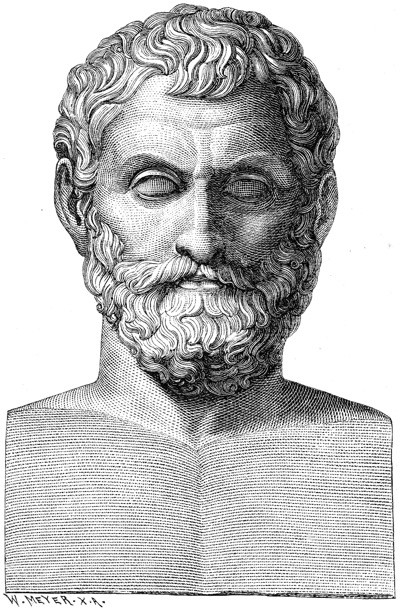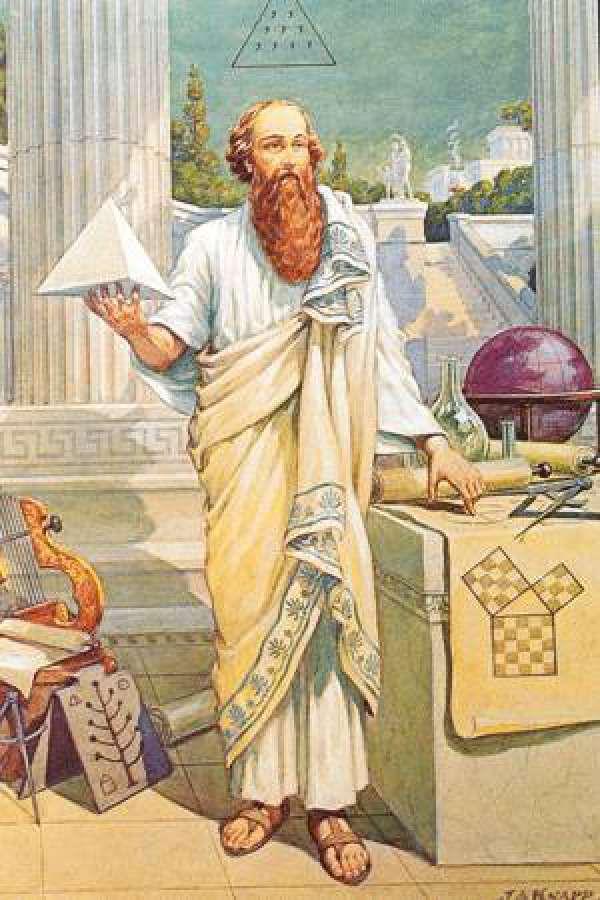I wouldn’t say that I have a lot of free time during the week, I have a white board above my desk that’s filled top to bottom with “to-do’s”, but I did manage to carve out some time this week to sit down in Madison Square park and catch up on some light reading.
 My book of choice was Early Greek Philosophy by Emeritus Professor John Burnet of the University of St. Andrews. A rather thick, dusty hardback, I found this little gem nestled inconspicuously high up on a forgotten shelf in the philosophy section of Strands Bookstore.
My book of choice was Early Greek Philosophy by Emeritus Professor John Burnet of the University of St. Andrews. A rather thick, dusty hardback, I found this little gem nestled inconspicuously high up on a forgotten shelf in the philosophy section of Strands Bookstore.I curiously flipped to the second chapter entitled “science and religion” and quickly devoted the next hour of my time to reading about the relationship between early greek philosophy and the religion of the ancient world. Like I said, just some light reading.
The chapter raised some interesting questions.
What is the relationship between ancient philosophy and religion? Are they good buddies that hang out on the weekends to shoot darts and play pool? Or are they temperamental roommates who begrudgingly accept the others existence but never wash the dishes?
Well, if a distinguished professor of ancient philosophy can tackle the subject, then certainly I could do the same, albeit in a much less thorough and distinguished way. Then again, what I lack in prestigious degrees, I make up for in terrible philosophy jokes.
How many existential philosophers does it take to screw in a light bulb?Two- one to bemoan the darkness until the other redefines something else as light.
Anyway…
This article is not so much an examination of theology or the philosophy of religion. Instead, I hope we can take a look back through the centuries of ancient philosophy and see what impact spirituality has had on the development of ancient thought and what type of relationship religion had with the study of philosophy. I think we might find, perhaps to the chagrin of some, that many tenants central to modern religions were argued for over thousands of years ago by the first philosophers of the ancient world.
To do this, I suppose we ought to start with Thales of Miletus and all the other Milesian philosophers. After all, it was Bertrand Russell who told us that “Western philosophy begins with Thales.”
1. The Milesian school and the Arche
Thales and the presocratic thinkers who would  live and study along the Ionian coast of Asia Minor would become collectively known as “the Milesian school”. They were primarily interested in the study of metaphysics.
live and study along the Ionian coast of Asia Minor would become collectively known as “the Milesian school”. They were primarily interested in the study of metaphysics.
 live and study along the Ionian coast of Asia Minor would become collectively known as “the Milesian school”. They were primarily interested in the study of metaphysics.
live and study along the Ionian coast of Asia Minor would become collectively known as “the Milesian school”. They were primarily interested in the study of metaphysics.What is metaphysics? Put plainly, it is the study of the underlying substance of reality. As suggested by its name, metaphysics is the thing we must understand before we can understand physics.
The Milesian philosophers looked around at the world they lived in and asked the profound question- what is all this stuff?
At the heart of their inquiries was the idea that the universe as we know it could be broken down into one primordial substance that acts as the foundation for all of reality. This substance, known as arche, would be the first substance, the common denominator for our universe.
The Milesians put forth numerous possible answers. Thales proposed that the first substance was water and that all things, in some way, come from water.
Anaximander came up with a slightly more abstract solution when he proposed that all of existence sprang from a boundless, unknowable substance which is referred to as apeiron. This name is translated as “the boundless” or sometimes as “the indefinite”.
Anaximenes, another Milesian philosopher, proposed that the primary substance was air and that all of matter came to be from air. He speaks of the soul as being composed of air (the breath of life) and even claimed that the earth floated upon a cloud of air.
Now what is interesting about all of this is that while attempting to uncover this first substance, the philosophers would often attribute divine importance to the arche. It was said that Anaximenes believed that there was a God within the air. Anaximander, likewise, believed that the apeiron was of almost divine importance.
The Milesian’s use of the word “God” was not the same as our modern understanding of the word. At the time, their use for the word was entirely secular and used as a way to contemplate metaphysical considerations.
Still, from the Milesian school we see that there is the idea of some underlying force within the universe. Whether this force is of a divine, spiritual nature is not keenly known.
2. Pythagoras and the circle of rebirth

Fast forward one generation and we see a dramatic shift in philosophy’s perspective of spirituality through the teachings of Pythagoras and the Pythagoreans.
Unlike the Milesians, Pythagoras is believed to have traveled many of the Aegean islands as well as the Attica mainland before finally creating his religious sect in modern-day Crotone, Italy.
A central tenant of the Pythagorean philosophy was the idea of a wheel of rebirth where the souls of the departed often come to life once more in the form of animals or even plants. It was said that Pythagoras once heard a dog howl and begged it’s master not to beat it, for within the dogs cry he had heard the voice of a lost friend.
Unlike the Milesians, Pythagoras not only embraced spirituality, he actually demanded it. His followers were required to adhere to a strict set of religious traditions if they wished to remain within the sect. These traditions included abstaining from eating meat as well as abstinence from sex.
3. Xenophanes the monotheist?
Now, while Pythagoras fully embraced spirituality alongside philosophy, Xenophanes, another presocratic philosopher, is best remembered for his critique of religion of the day.
 Xenophanes argued that humans have an unhealthy tendency to anthropomorphize the holy and the divine. Perhaps prompted by the texts of Homer which describe the gods as very fallible, human-like creatures, the prevailing religion of the day painted the gods as scoundrels who were often victim to human-like desire.
Xenophanes argued that humans have an unhealthy tendency to anthropomorphize the holy and the divine. Perhaps prompted by the texts of Homer which describe the gods as very fallible, human-like creatures, the prevailing religion of the day painted the gods as scoundrels who were often victim to human-like desire.Surely, if there are holy deities, they would not be subject to the whims and shortcomings that humans are, Xenophanes argues.
“But mortals suppose that gods are born,
wear their own clothes and have a voice and body. (frag. 14)
Ethiopians say that their gods are snub-nosed and black;
Thracians that theirs are blue-eyed and red-haired. (frag. 16)
But if horses or oxen or lions had hands
or could draw with their hands and accomplish such works as men,
horses would draw the figures of the gods as similar to horses, and the oxen as similar to oxen,
and they would make the bodies
of the sort which each of them had. (frag. 15)”-Xenophanes
The conclusion that Xenophanes draws is that God, if indeed there is a God, would be wholly unlike the humans of this world. God would not be fallible, corporeal, or even intelligible. In short, God would be beyond our comprehension.
For his assertions, Xenophanes is often considered to be the first monotheist intellectual of the western world, an idea which was highly controversial at the time.
4. Plato and the eternal soul
If we are going to have a discussion about spirituality and philosophy, we most certainly cannot avoid Plato. Ah, good old Plato.

Plato, you see, melded philosophy with spirituality. So if we were to stick with my metaphor from the opening of this essay, then we would say that philosophy and spirituality are not roommates at all. They are, in fact, the exact same person.
Within The Meno, Plato, through the voice of Socrates, lays out an argument for the existence of an eternal, all-knowing soul that resides within each human body.
It is in his other dialogue, The Phaedo, that Plato argues again that this soul does not die with the body. Instead, it departs from the body and travels to another realm of existence, the world of the forms.
For those of you knowledgeable of Plato, you will know that the world of the forms is a cerebral, perfect realm of existence where the essence of all things reside. It is to the world of the forms that the soul returns to upon death and resides in a state of absolute knowledge and perfection.
Now this may sound familiar. That’s because it is rather similar to the Christian conception of heaven. It is no wonder then that Plato’s philosophy would be later heralded and treasured by the Christian theologian, Thomas Aquinas.
It is important to keep in mind that Plato’s idea of the transmigration of the soul and the world of the forms was not a religious one. To Plato, it was the basis of his metaphysical and epistemological philosophy.
So what have we learned from all this?
While science and religion appear to be very much at odds today, there once was a time when they were considered to overlap. The ancient philosophers went in pursuit of answers and often came up with answers that are strikingly similar to modern-day religious beliefs.
The Milesians believed that there was a unifying substance that connected all of existence. Although sometimes describing this substance as “God”, there pursuits were purely secular.
Pythagoras proposed the idea of reincarnation, of a circle of rebirth. Again, this was more of a metaphysical conclusion rather than a strictly religious one. Additionally, the idea of reincarnation had been established long before in the areas of India at this time.
Xenophanes is often credited as being the first monotheist in the western world, even though Xenophanes would have hardly considered himself a theologian.
And finally, Plato describes to us the transmigration of the soul into a realm of bliss, wisdom, and perfection. This idea was, once again, a philosophical summation, not a religious one.
So I suppose we could consider ancient philosophy and spirituality to be good-natured rivals. They get along in some respects; they disagree at other times. Occasionally they will come to the same conclusion. The manner in which they reach these conclusion, however, is vastly different.









No comments yet. You should be kind and add one!
Our apologies, you must be logged in to post a comment.